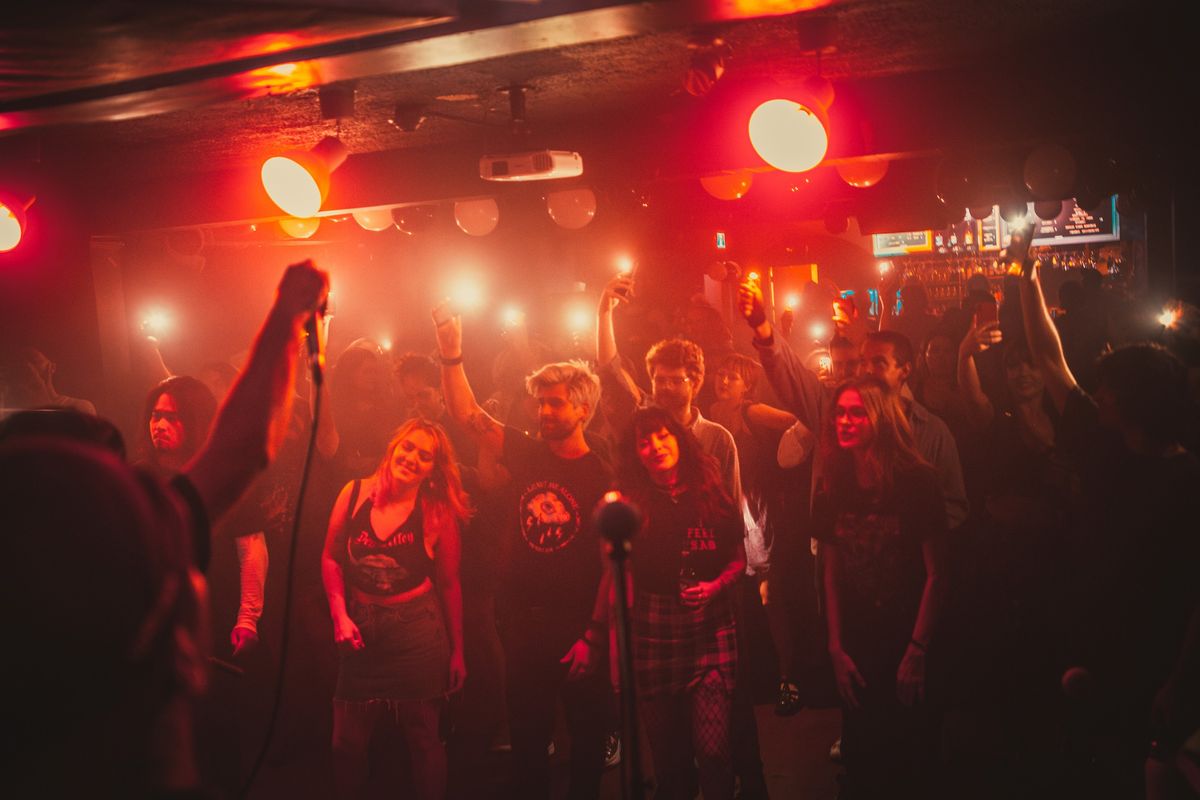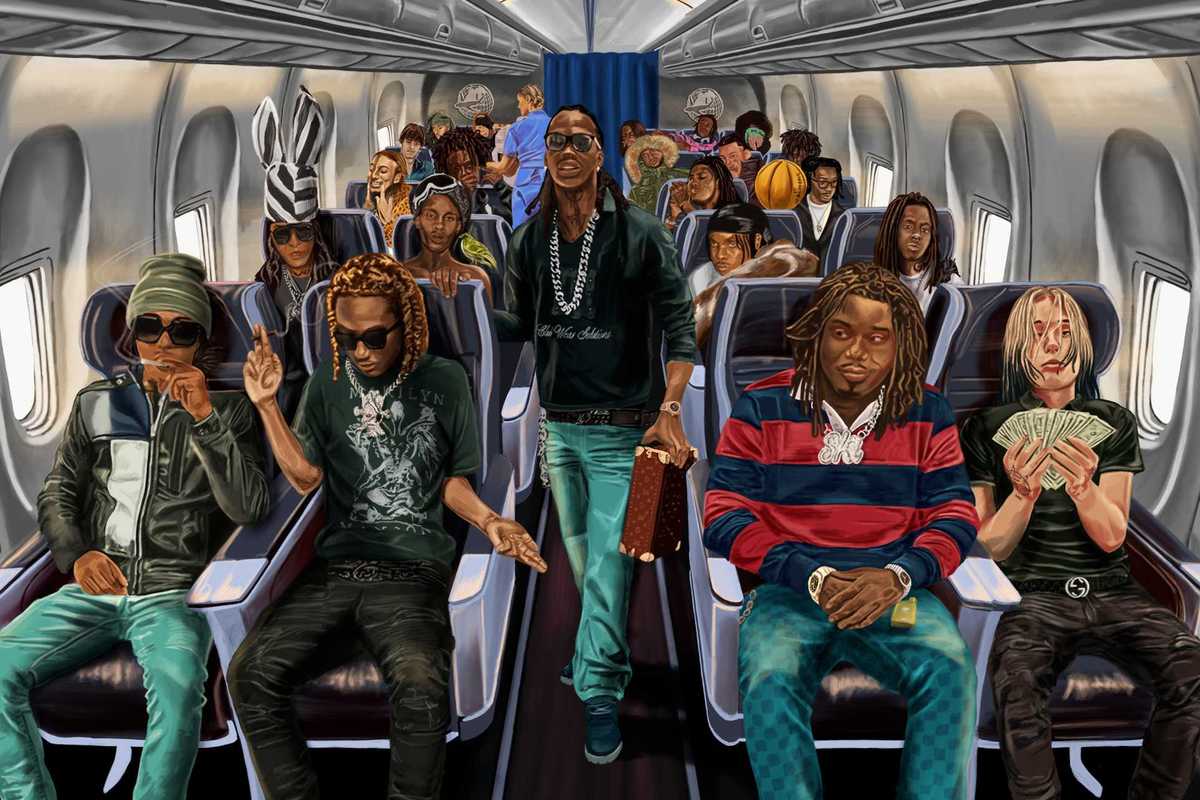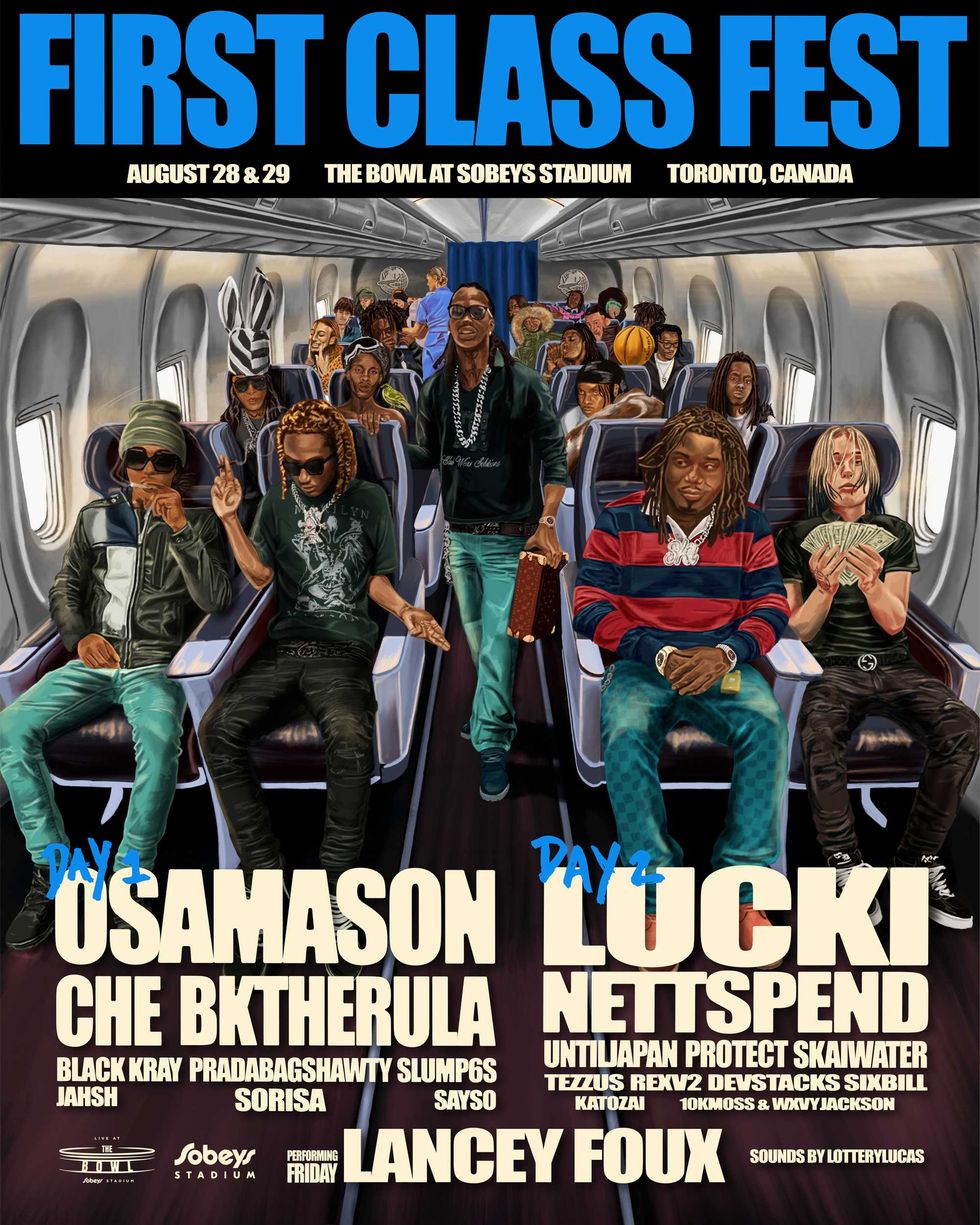A Year After It Closed, Founders of Montreal's Diving Bell Social Club Reveal Plans For a New Venue
The Diving Bell Social Club was a mainstay in Montreal music for five years prior to its closure — which was spurred largely by noise complaints. Now, the people behind that space are back with a new initiative and this time, they say, they're in it for the long run.

The Diving Bell Social Club
Montreal is getting a new music venue — though the exact details are TBD.
TBD is the current name for the project, which comes from Evan Johnston and Austin Wrinch, two of the founders of the now-closed Plateau venue the Diving Bell Social Club. Johnston and Wrinch have a new partner in the mix this time, Chantale 'Bea' Streeting, and together the trio have spent the last year developing a project that will become a new bar and venue.
This time, they're planning for the long-term. "The goal is to make this the forever space," says Wrinch.
The Diving Bell was operational as an entertainment venue — hosting concerts, comedy nights, and more — from 2018 to 2023. The decision to close it came in large part from the threat of noise complaint fines.
The building's St. Laurent location — a major commercial street — had residential neighbours next door, which led to visits from the police due to noise complaints. Though the venue was never fined, it was a risk they couldn't take. Plenty of local venues have shuttered due to noise complaints — most recently, the high-profile heritage theatre La Tulipe, whose closure sparked protests and a speedy regulation change in the Plateau-Mont Royal borough.
But Johnston and Wrinch always knew that was just the end of a chapter. When Johnston met Streeting at a tech conference, the two quickly bonded over music. Streeting — who works for a tech non-profit and is also a DJ — was excited about the possibility of collaborating.
"We all thought that there was an opportunity to come together to start up a new project — especially in light of all the spaces that are shutting down," Streeting says.
Now, the trio have a space nearly-confirmed in Montreal's Petite Patrie-Rosemont neighbourhood (not quite as central as the Plateau, but still in the city core), with the goal of opening it as a music venue by summer 2025. Speaking about the project for the first time, they shared their vision with Billboard Canada.
Designing a Dream Venue
It's going to take a lot of work to get it ready: right now, the building is a fully operational garage. Cars sit in it at this moment, Johnston laughs.
But the team made the clear decision that they would rather convert a space than take over an existing bar.
"‘With the situation in Montreal currently, with all these places getting shut down ,for me anyway, it’s very important to not take over a space that already exists," Wrinch says.
The team wants to contribute something additional to the ecosystem. "Everybody benefits from there being more spaces in existence."
Renovating a space also allows them to account for all their priorities: accessibility, high quality sound, "a banging green room," as Streeting puts it, and a spacious staff area. "A lot of these spaces, staff are an afterthought and we want to put it as a forethought — because people run a space," Streeting adds.
Johnston's goal is for their TBD project to become a third place, a concept that refers to a social setting outside of home or work. "I think there’s a big gap right now in terms of what people would consider their third places," he says. The Diving Bell was meant to be a third place, but, located on a third floor, it wasn't accessible to limited mobility users or appealing as a regular haunt. "We had these great communities of regulars that really didn’t even meet each other," he adds.
The new venue will have a division between bar and venue side, so people can come grab a drink even if they don't want to stick around for a show.
The team are also planning to record live performances, so that bands can come away from shows with new content for their use. They want to contribute to artist development and growth — "something that gives back to the community that goes beyond the brick and mortar limitations of the actual space," as Wrinch says.
Threats to Montreal Nightlife
As far as the actual space goes, the trio are focused on longevity.
"‘For the sake of the community moving forward, we don’t want to start a new space that doesn’t have the potential to actually do what it needs to do in the long term," Wrinch says. They're also beginning to look for investors, seeking partners with a shared understanding of the needs and challenges facing artistic communities in Montreal.
Asked what key factors are needed for that long term, Johnston is clear-minded: "infrastructure," he says. They needed a space with no residential neighbours — which makes a garage, literally disconnected from physical neighbours, perfect.
When debating what approach to take for the new project, they visited a few converted spaces in Brooklyn, Johnston says, which made him feel even more resolute that the garage was the right way to go — even though it means bringing in architects and engineers and getting a whole host of permits from the city.
The zoning in Montreal makes it difficult to find already-existing bars that don't have residential neighbours and won't face noise complaint threats, Wrinch explains. It's like a Catch 22. The spaces that are best-designed to be part of Montreal nightlife are also the ones likely to face existential threats.
Wrinch also finds it bizarre to be at odds with residents in the middle of a housing crisis. "It’s a weird argument to be like, 'we should take rights away from residential places and give them to small businesses,'" he reflects. "There needs to be more places for people to live too." Ultimately, what he would like, is just for a situation where no one is calling the cops.
Hope for Change
Since the Diving Bell shut down, though, the city has taken steps around nightlife noise problems. The city's new nightlife policy promises to soften some noise restrictions — though timeline and specifics are unclear — and earmarks $2.5 million for venue soundproofing. It also promises funding towards nightlife hubs and regulations to allow certain bars to stay open past 3 a.m.
Johnston says after the Diving Bell closed, they kept getting the same question: "how does it make sense that a neighbour can complain for sound, when it’s very clear that a bar or venue is operating with a pre-existing license?" He's glad that the conversation has picked up over the last year.
"The specific policy decisions I don't think are there yet," he adds. He suggests that the focus on nightlife hubs and extended hours is muddying the waters when it comes to the need for action on noise complaints. But, he says, he's hopeful about a shift in the zeitgeist.
"We’ve been to protests outside of La Tulipe, and seeing the response of the community to a place that was really really just taken out in a really stupid way, is good," he continues.
"We know that the community is there for these places," he adds. "Hope to see more change."
The Diving Bell team know first-hand how difficult it is to launch a venue that's not only active, but stable. "There’s way more reasons for things not to happen than there are for new things to happen," Wrinch says of Montreal's nightlife landscape.
But with their joint experience and expertise, the TBD team might just beat the odds.


















